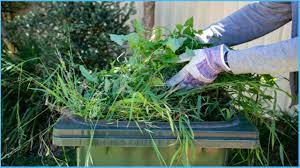Courtesy : netsolwater.com
Green waste recycling plant
The majority of waste is disposed of in landfills and oceans, posing a threat to the environment and human health. Green waste recycling is an excellent way to protect the environment. The goal of green waste recycling is to protect landfills and oceans from waste-related toxins. When you recycle something instead of throwing it in the trash, it goes to a special waste yard where it will be utilised for something else instead of lying in our landfill for years. Recycling your green waste can assist the environment by lowering the amount of methane in the atmosphere. Recycling green waste can have a major impact on the health and lifespan of our planet.
Importance of Green Waste Recycling
Composting, mulching, and anaerobic digestion can all be used to recycle organic waste such as green materials and food waste, resulting in sustainable energy and fuel. State and local programmes, as well as a large number of private firms, call for reducing the amount of organic waste sent to landfills and increasing the creation of compost and mulch.Green waste can be separated from conventional trash and composted, recycled, or repurposed for other uses. After breakdown in composting facilities or by anaerobic digestion, it is used as a fertiliser and soil amendment. It could be used as a daily cover in landfills to reduce the need of virgin soil cover materials. It can be used for landscaping, dust control, erosion prevention, and weed suppression after being processed with wood chips and green waste mulch. It can be utilised in farming and agricultural purposes. It can be turned into biofuel and/or other renewable energy sources.
Uses of Recycled Green Waste
Green waste can be used to improve the quality and sustainability of industrially produced topsoil’s, as well as the sanitary and efficient disposal of sewage.
Manufactured top soil
Green waste is an integral part of many manufactured topsoil’s, as it provides both nutrients for growing plants and increases the volume of manufactured topsoils. Mixing industrial wastes such as fly ash or coal dust with green waste to create artificial topsoil not only facilitates the repurposing of industrial debris and keeps it out of landfills, but it also allows the nutrients in green waste materials to be cycled back into the environment.
Sewage disposal
Green waste when mixed with sewage waste, gives a safe and environmentally sustainable sewage disposal option. Pathogens and contaminants found in sewage wastes are no longer a threat to the environment when green and sewage wastes are composted together. The co-composted remnants of these organic wastes can be used in agriculture without risk. This method reduces the amount of rubbish released in landfills and other waste disposal facilities while also allowing for the entire cycling of organic nutrients through the environment.
Renewable energy
Bio fuel can be made from biogas extracted from biodegradable green waste. Non-food crops can be found in green waste, which breakdown to produce cellulose ethanol. It can also assist to reduce the use of petroleum gases, which emit enormous volumes of greenhouse gases like carbon dioxide when they are burned.
State of the soil
Green waste composting has also been related to the prevention of soil-borne illnesses including damping off and root rots, which are common in greenhouses and large-scale farms. This disease-suppressing property is beneficial for developing countries who lack the technology or means to acquire expensive fertilisers.





